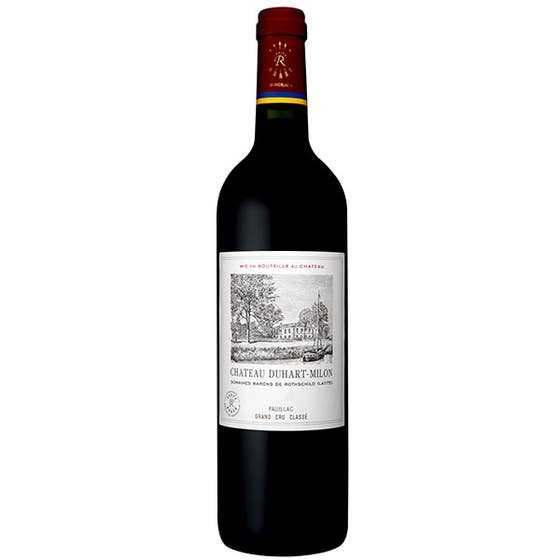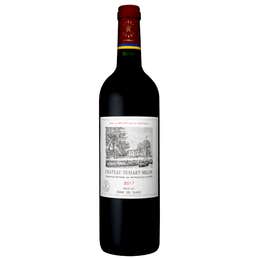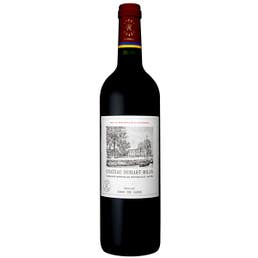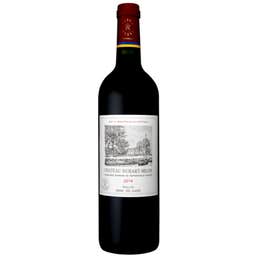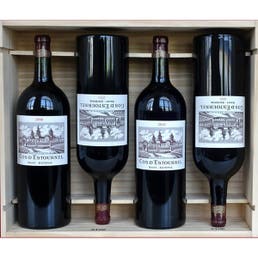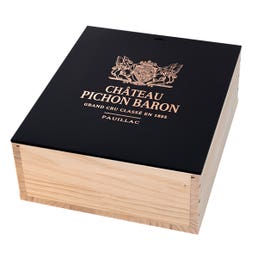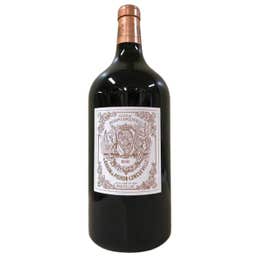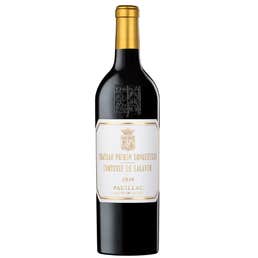Château Duhart-Milon 2010
• Domaine: Château Duhart-Milon
• Appellation: Pauillac
• Classification: Fourth Growth, 4ème Grand Cru Classé
• Origin: Left Bank, Bordeaux, France
Château Duhart-Milon is the only Fourth Growth property in the Pauillac AOC. It is an estate that lovers of the First Growth, Château Lafite Rothschild, should know. Not only is it a mere 7-minute drive away from Château Lafite Rothschild, but the two are considered sister properties with the same winemaking team. Like Lafite, the estate is owned by part of the portfolio of Domains de Barons de Rothschild. Château Duhart-Milon is home to some truly phenomenal terroir of gravel, limestone, and clay. When asked why he purchased the property, the Baron put it very plainly: “It would have been nonsense to not acquire such a great neighboring vineyard.”
Château Duhart-Milon has a very interesting and circuitous history. The property was initially the Second Wine for Lafite Rothschild when the Marquis de Alexandre Segur, or “The Wine Prince,” was running Château Lafite Rothschild, Château Latour, Château Mouton Rothschild and Château Calon Segur. The Marquis saw the potential of Château Duhart-Milon, and in the 19th Century, the wines were already held in great esteem. It was considered a cru vineyard in the making. Château Duhart-Milon received part of its name from Sir Duhart, who was rumored to have been a pirate and gunrunner for King Louix XV. When he was done pillaging the high seas, he decided to retire in Pauillac in a little dwelling that was near the port. The dwelling was called the, “pirate’s house,” and was eventually torn down in the 1950s. Yet the building’s legacy still lives on – it’s on the label for the grand vin of Château Duhart-Milon.
Château Duhart-Milon was classified as a Fourth Growth in 1855, and then it was owned by the Castéja family. The Castéja family was very well known throughout Bordeaux, and they currently oversee the illustrious Château Trotte Vielle. Right before World War II, disaster seemed to stalk Château Duhart-Milon. Frosts ravaged its vineyards, it changed hands at least five times during the 1950s and 1960s, and out of the massive 110 hectares of land, only 17 hectares were left planted with vines by the time Baron Eric de Rothschild acquired the estate. The Rothschilds almost doubled the size of the vineyards at the property, restoring the Fourth Growth to its former glory.
Château Duhart-Milon is a rare estate, because it is one of the few properties in Pauillac without an actual château. Instead, it hosts vat rooms, barrel storage, and of course the stars of the show – the vines. The vineyards are planted with 76 hectares of Cabernet Sauvignon and Merlot, and the vines are about 30 years old on average. Like its sister estate, Lafite, the barrels are all made on property by the same cooperage. Charles Chevalier is the director of winemaking, and each plot at Château Duhart-Milon is isolated and judged separately based on quality. The grapes are harvested and fermented in temperature controlled stainless steel vats. The wines of Château Duhart-Milon are powerful, like many Pauillacs. They require a bit of time for their aromas to unfold and younger vintages can be decanted if need be.
Tasting Notes
"Deep garnet in color, the 2010 Duhart-Milon rocks up with upfront notions of baked plums, warm cassis and mulberries plus suggestions of cigar box, sandalwood, dried roses and forest floor. Full-bodied, rich and decadent in the mouth, the palate has a beautiful texture of velvety, fantastically ripe tannins and lovely freshness, finishing very long and very classy". - Lisa Perotti-Brown, March 2020 Week 1, The Wine Advocate Magazine (3/5/2020), Ratings: 94, Drink: 2020-2047
"Like a lot of 2010s, the 2010 Duhart-Milon-Rothschild is tight and backward, yet has serious potential. Sporting a deep ruby/purple color and classic notes of currants, lead pencil shavings, cedarwood and saddle leather, it hits the palate with full-bodied richness, a tight, firm focused texture and beautiful concentration. Its tannins are present, yet ripe and integrated, and it has the purity and freshness that’s the hallmark of this great, great vintage. Give bottles another 2-3 years and it should keep for two to three decades." Jeb Dunnuck, up From The Cellar And Misc. New Releases (12/12/2017) Rating: 94+
| LWIN | 1009482 |
|---|---|
| Stock Status | Out of Stock |
| Appellation | Pauillac |
| Vintage | 2010 |
| Brand | Chateau Duhart-Milon |
| Shipping Weight | 3.000000 |

